Breeding for climate-resilient field crop and vegetable varieties is the key contribution global seed companies make to climate action and appears to have increased compared to 2016. In addition to seed saving traditional plant breeding can help to produce efficient varieties without sacrificing diversity and resilience.
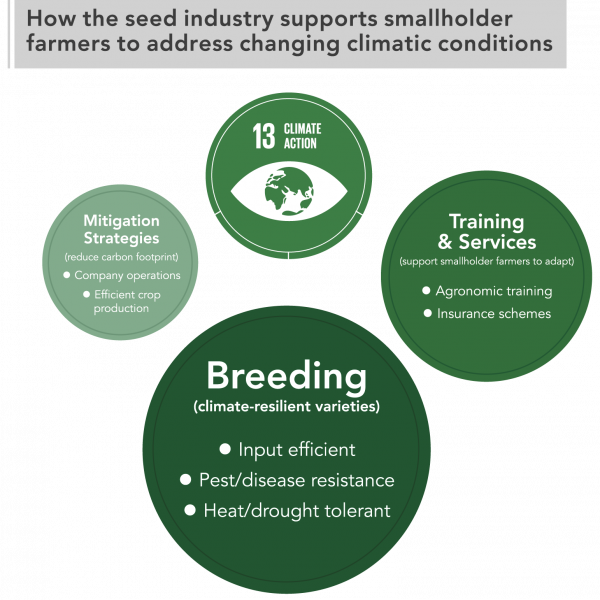 Breeding For Climate Resilient Varieties Is Increasing Access To Seeds
Breeding For Climate Resilient Varieties Is Increasing Access To Seeds
The CoI in Costa RicaHaiti is prioritizing climate smart and stable varieties of common bean sorghum and.

Breeding for climate resilience varieties. Firstly farmers have bred Climate Resilient Seeds and varieties that are contributing to resilience. Secondly Diversity of crops increases the resilience of farming to climate change. The first volume of Genomics and Breeding for Climate-Resilient Crops presents the basic concepts and strategies for developing climate-resilient crop varieties.
To face this looming threat significant progress in developing new breeding strategies has been made over the last few decades. Key message Intensive public sector breeding efforts and public-private partnerships have led to the increase in genetic gains and deployment of elite climate-resilient maize cultivars for the stress-prone environments in the tropics. Abstract Maize Zea mays L plays a critical role in ensuring food and nutritional security and livelihoods of millions of resource-constrained smallholders.
In this paper we characterise efforts to breed new varieties of crops for climate resilience in southern Africa and evaluate the extent to which climate model projections. Fructan content of wheat grain varies by genotype however the utility of fructans as a breeding target to develop climate resilience nutritious wheat varieties has not been examined. A modern biotechnology a tool used in plant breeding the development of new adapted varieties has become a more precise and rapid process.
These traditional breeding methods such as open pollination can deliver commercially viable crops which can help farmers adapt to a changing climate. These traditional breeding methods such as open pollination can deliver commercially viable crops which can help farmers adapt to a changing climate. Rice is the most important food crop both in value and volume for the Asian population.
Advanced crop science offers one of the most effective ways of dealing with the vagaries of climate change. Breeding resilience in a changing climate. A new breeding initiative focuses on high-performing varieties adapted for agroforestry The creation of new coffee varieties better adapted to climate change is critical for the future of coffee.
Breeding resistant wheat varieties offers a practical defense against the effects of climate change helping to maintain productivity and strengthen food security despite increasing water scarcity higher temperatures and the emergence of new pests and disease. Crop breeding for resilience to changing climates is a key area of investment in African agricultural development but proactively breeding for uncertain future climates is challenging. Frequent drought flood and salinity stresses exacerbated by global climate change.
In 2017 WCR will join a major effort funded by the EU to address the challenges posed by climate change through coffee breeding. For example if growers. Companies report ongoing investment in the development and marketing of climate-resilient varieties through their own breeding programs or in collaboration with others.
Genomics-assisted backcross breeding for infusing climate resilience in high-yielding green revolution varieties of rice Published on Jun 19 2019 0322 AM. The paper argues that strengthened breeding systems using the latest technologies together with more open international exchange of germplasm and rapid change in varieties are fundamental components of this adaptation strategy. Climate resilience goals for breeding appear simple enough.
Breeding for climate resilience in maize for the tropical rainfed environments Maize Zea mays L plays a critical role in ensuring food and nutritional security and livelihoods of millions of resource-constrained smallholders. Models of future climate and tools to manage the vast amounts of information can help better target varieties and crops to new climate conditions in a particular region. The science supporting plant breeding is advancing rapidly and with sustained support plant breeding will make an even greater contribution to feeding the world and tackling climate change.
The diversity of their portfolio provision. By Dr Michiel van Lookeren Campagne CSIRO Dr Bertus Jacobs LongReach Plant Breeders. Key message Intensive public sector breeding efforts and public-private partnerships have led to the increase in genetic gains and deployment of elite climate-resilient maize cultivars for the stress-prone environments in the tropics.
Abstract Maize Zea mays L plays a critical role in ensuring food and nutritional security and livelihoods of millions of resource-constrained smallholders. In addition to seed saving traditional plant breeding can help to produce efficient varieties without sacrificing diversity and resilience. If crops can survive devastating conditions from droughts and severe heat to storms and humidity then smallholder farmers will be able to deliver the food that people need.
Through the use of mutation breeding technologies new varieties that are adapted and resilient to climate change and with improved fibre quality can be used to continue to meet the needs of the population despite changing weather patternsImproved resilience for millions of people. There are 4 ways in which Biodiversity and Seed Freedom creates climate resilience and is a climate solution. CIMMYT follows a decentralized maize breeding strategy in SSA Asia and Latin America to reduce the effects of large GEI Prasanna et al.
CIMMYTs breeding efforts for developing and deploying improved maize germplasm with climate resilience and other client-preferred traits are more than four decades old Cairns and Prasanna 2018. To be successful crop breeding needs to stay several steps ahead of climate change.
 Plant Traits Directly Influence The Harvest Brazilian Soy Farmers Use Fastripening Varieties Adapted To The Local Clim Crop Protection Brazilians Adaptations
Plant Traits Directly Influence The Harvest Brazilian Soy Farmers Use Fastripening Varieties Adapted To The Local Clim Crop Protection Brazilians Adaptations
 This Unprecedented Kill Reveals Why We Need To Keep Rivers Resilient Yellowstone Climates Science Nature
This Unprecedented Kill Reveals Why We Need To Keep Rivers Resilient Yellowstone Climates Science Nature
 Pin On Organic Agriculture And Seeds
Pin On Organic Agriculture And Seeds
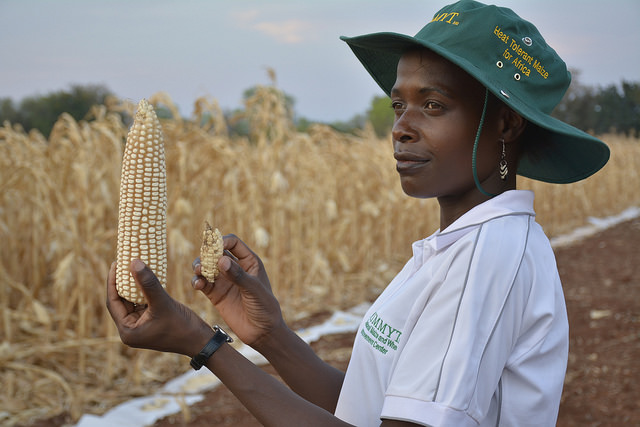 New Crop Varieties That Counter Climate Change A Best Bet For Farmers Maize
New Crop Varieties That Counter Climate Change A Best Bet For Farmers Maize
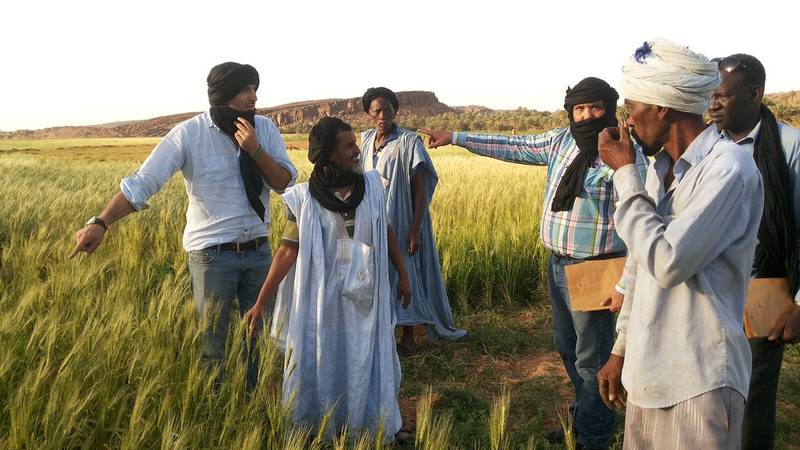 Climate Resilient Crops Strengthen Future Food Icarda
Climate Resilient Crops Strengthen Future Food Icarda
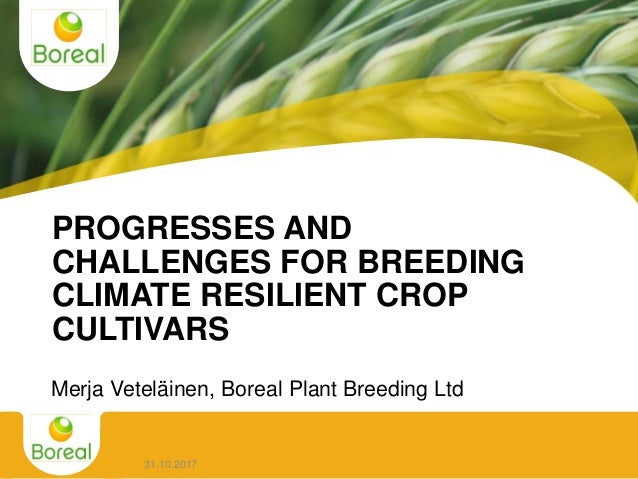 Progresses And Challenges For Breeding Climate Resilient Crop Cultiva
Progresses And Challenges For Breeding Climate Resilient Crop Cultiva
 Kale Cauliflower And Cabbage Are All Varieties Of A Single Magical Plant Species Brassica Plant Breeding Plant Species
Kale Cauliflower And Cabbage Are All Varieties Of A Single Magical Plant Species Brassica Plant Breeding Plant Species
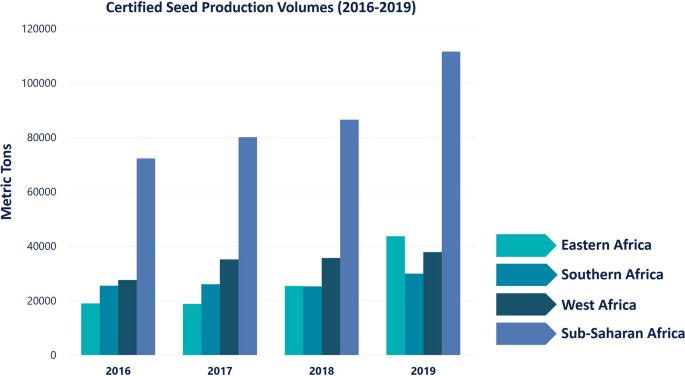 Beat The Stress Breeding For Climate Resilience In Maize For The Tropical Rainfed Environments Springerlink
Beat The Stress Breeding For Climate Resilience In Maize For The Tropical Rainfed Environments Springerlink
 Netherlands Fields Of Innovation Show The Future Of Sustainable Vegetable Varieties Syngenta
Netherlands Fields Of Innovation Show The Future Of Sustainable Vegetable Varieties Syngenta
 Agriculture Is In Every Sdg Part 1 Agriculture Smart Farm Infographic
Agriculture Is In Every Sdg Part 1 Agriculture Smart Farm Infographic
 Do You Know Your Storage Options 090519 Storage Options Farm Storage Temperature Outside
Do You Know Your Storage Options 090519 Storage Options Farm Storage Temperature Outside
0 comments:
Post a Comment